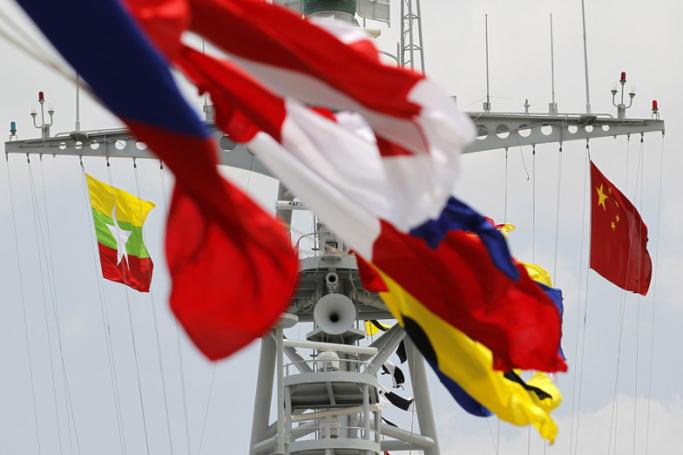Call it China’s deep-seated frustration or the Chinese Communist Party’s belief in might is the right dictum, now the country’s diplomats too have started using foul languages against those who refuse to toe in Beijing’s line either on Hong Kong or the South China Sea issue.
When New Zealand joined the US, Canada, Britain and Australia—called approvingly as ‘Five Eyes’ because of intelligence partnership among these five countries, in denouncing China for its concerted campaign to silence all critical voices in Hong Kong, Chinese Foreign Ministry spokesperson Zhao Lijian during a daily briefing on November 23 stunned journalists by his highly vituperative statement against New Zealand.
“No matter if they have five eyes or 10 eyes, if they dare to harm China’s sovereignty, security and development interests, they should beware of their eyes being poked and blinded,” Chinese Foreign Ministry spokesperson Zhao Lijian said.
Some people are familiar of the past behavior of Zhao Lijian, who as a deputy chief of mission (DCM) in Pakistan used to write full name as ‘Muhammad Zhao Lijian’ on his official twitter account. They say the Chinese Foreign Ministry spokesperson is known for his rash and intemperate behavior. In 2019, former US National Security Advisor Susan Rice asked the Chinese government to recall Zhao Lijian from Pakistan after he indulged in a verbal spat with her through a social media platform on the issue of Uighurs.
He was called a “racist disgrace” by the ex-US National Security Advisor when he tweeted, “If you’re in Washington DC, you know the White never went to the SW area, because it’s an area for the Black & Latin. There is a saying ‘black in & white out’ which means that as long as a black family enters, white people will quit, & price of the apartment will fall sharply.” Despite the incident showing undiplomatic behaviour of Zhao Lijian, the Chinese government-led by Xi Jinping promoted him as the Chinese Foreign Ministry spokesperson.
The meaning is clear, China doesn’t believe in discipline, etiquette or the rule of law as following them is a sign of weakness and the country’s leadership doesn’t want to project such an image. Result is, it puts people like Zhao Lijian in the forefront in portraying a false narrative of a development in which China is found to be involved.
Take the case of the ongoing standoff between India and China on the Line of Actual Control. It started when Chinese PLA troops were objected to from transgressing into Indian areas; they were stopped from marching into the Indian territory, and were fiercely contested when they tried to play a game with Indian interests in eastern Ladakh. International community was aware of each and every development surrounding tension between India and China.
But Chinese Foreign Ministry spokesperson Zhao Lijian blamed India for the bitter standoff between the two countries. He held India responsible for the June 15 Galwan Valley incident in which 20 Indian soldiers were killed and didn’t bat an eyelid in questioning India’s claim on Ladakh. When none of these issues could capture international attention then the Chinese leadership and the Foreign Ministry spokesperson came out with new excuses. It blamed infrastructure developed by India along 3488-km along LAC for the standoff between the two countries. In fact, its activity in eastern Ladakh and India’s prompt action in quelling its free-wheeling rampages in the Himalayas has deeply embarrassed Beijing.
While incidents of Hong Kong and unabated persecution of Uighur Muslims in the Xinjiang region—have left it high and dry. Consequently, it is busy in venting its ire against India, New Zealand, Australia, Canada, England, the US, Japan. But it is looked down by the international community with suspicion; countries like Thailand, Myanmar and Bangladesh have turned down its projects, while its supply chain mechanism has started creaking.












